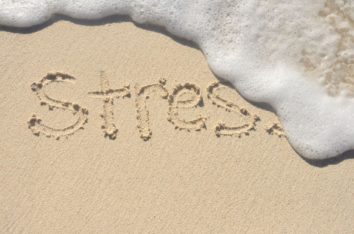Inability to manage one's anger can be quite uncomfortable. It can manifest itself in a variety of ways, including outbursts of sorrow, frequent shouting at others, repeated threats to loved ones, casual emails using incendiary language, and aggressiveness. Aggression comes in two forms: direct and indirect. Direct violence manifests itself through yelling, calling names, and destroying property, whereas indirect violence manifests itself through social isolation and rigidity. Anger results in a variety of health problems, including elevated blood pressure, deteriorating heart health, and frequent migraines. Additionally, it is associated with skin and digestive disorders.
Fortunately, various hacks exist to assist an individual in effectively controlling their anger. For example, pausing before speaking, being firm, engaging in physical activity, taking mini-breaks throughout the day, employing humor, and frequently forgiving.
Why Is Anger Management Critical?
Anger management is critical for physical, mental, and emotional wellbeing. It improves the quality of one's connections with others and with oneself. This is why it is necessary for effective conflict resolution and the development of one's problem-solving abilities in any situation (workplace, school, or at home). Managing one's anger is a learned ability that takes time to perfect. Patience and consistent practices are critical components of effective anger management. Additionally, accountability for one's conduct becomes critical. What does this imply? This indicates that if someone loses control of themselves and injures anyone, they should take responsibility for their actions and refrain from making superfluous excuses.
Is There Any Effectiveness in Taking a Pause Before Speaking?
When emotions are running high, it's all too simple to spout cruel comments. As a result, it is critical to take a few moments to gather and compose oneself. Additionally, thinking before saying demonstrates good behavior to others. It may motivate them to practice it again the next time.
It contributes to the establishment of a comfortable atmosphere during a one-on-one debate or talks. According to research, individuals do not thrive in the absence of meaningful connections. Additionally, in any relationship, one desires attentiveness and genuine communication. Without these fundamental characteristics, it becomes exceedingly difficult to progress in the relationship.
Pausing while speaking in a business situation demonstrates consideration and concern for others. When coworkers see these characteristics in a peer, they are driven to engage with the individual and desire to work with them more. Pauses increase the listener's engagement during a presentation. Without a question, this is one of the most effective tactics for dealing with angry outbursts.
Assert Yourself
Assertiveness is about avoiding fault-finding and blaming others. Additionally, it refers to the ability to express oneself without abusing the rights of others. Generally, it is recommended to express oneself using statements that begin with the letter "I." For instance, "I was irritated when you failed to affirm my feelings." According to psychology experts, confident people do not suppress their rage.
Engage in Physical Activity
Physical activity, such as a brisk walk, helps to relax the mind and lowers cortisol levels in the body which is a stress hormone. Additional advantages include the following:
- Beneficial to the heart
- Enhances metabolism
- Enhances memory
- Contributes to weight loss
- Forms the entire body
Take Breaks
Taking mini-breaks throughout the day aids with concentration and energy management. Frequently, a foggy head and constant thoughts contribute towards an angry outburst. Thus, a 5-10 minute break following an hour of concentration (and work) can assist alleviate the condition.
Breaks, according to research published on SSRN, can enhance employee morale. It results in increased job satisfaction, improved emotional health, and increased motivation to advance in one's profession.
Utilize Humor
Taking a lighthearted approach to life's events can assist in effectively dealing with rage. It aids in overcoming one's irrational expectations. To successfully employ this method, one should avoid caustic humour, since it can intensify the problem. Among the additional advantages of comedy are the following:
- Enhancement of cardiovascular health
- Pain reduction in the body
- Improved sleep quality
- Stress reduction
Additionally, humor enables one to forgive oneself and others. According to Bianca L. Rodriguez, a psychotherapist, laughing has an astonishing healing element. That is, if one can laugh at and forgive oneself, it becomes easier to forgive others. Additionally, laughter has been shown to boost pain tolerance. The intriguing aspect is that it has a beneficial effect regardless of the individual's current mood. As a result, even someone who is depressed can become happy from it.
Meditation—An Additional Technique
Engaging in meditation activities can significantly improve one's ability to handle anger. Meditation is well-known for its ability to aid in emotional regulation and self-awareness. This occurs because meditation activities train the practitioner to be present at the moment by removing distractions. Additionally, it needs an individual to observe their thoughts and feelings objectively. Individuals can meditate in a variety of methods, including mindfulness, guided, mantra, chakra, and yoga. Individuals are free to select any form that suits them. A critical aspect of maximizing the benefits of these workouts is consistent practice. As a result, meditation activities are one of the most effective techniques to manage anger.
Conclusion
It is a generally held opinion that every minute an individual remains furious, he or she forfeits their inner calm and contentment. It can be concluded that the angry individual continues to believe they are invulnerable to the influence of rage. However, in actuality, they cause double harm to both themselves and the community. Several practical techniques for controlling anger include thinking before speaking, taking mini-breaks, employing humor, meditation, assertiveness, and exercise. For a long-term and desired change in anger management, courage, a sense of responsibility, and everyday practices are important.
Read More: 10 Ways To Improve Personal Development – The Successful Future





